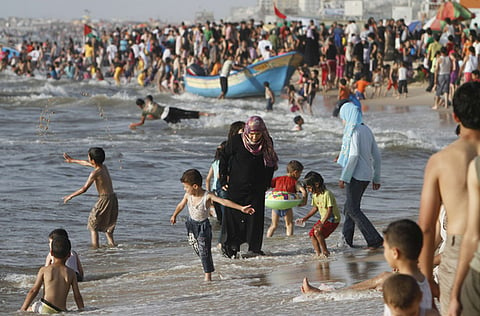Collective Arab decision needed on Gaza
Two years after Israel's onslaught, the Strip still waits to be rebuilt

Two years after Israel's war on Gaza, nothing really has changed much. Palestinians in the besieged Strip continue to languish under the acute deterioration of essential services and shortages of basic supplies. Hospitals are still without power and school buildings, destroyed by the Israeli war, have yet to be rebuilt.
Several attempts to break the blockade have been violently rebuffed by Israel under the watchful, but helpless, eyes of the international community.
Many thought the sacrifice of Gaza would lead to the revival of the peace process. Again, they were proven mistaken. The peace process is dead, like those trees in Gaza hit by the depleted uranium shells during the bloody attack on the steadfast Strip.
What is Gaza waiting for, two years after hundreds of people were killed and thousands of buildings levelled to the ground? Actually nothing. Its people have given up.
But they cannot be abandoned. The Arab League, which has been pretending that the ‘Gaza problem' doesn't exist, must make lifting the blockade of the Strip its paramount objective today. It met urgently when the peace talks collapsed earlier this month after Israel rejected a US request to stop the colony expansion. Why can't it meet for a plan, or a decision, to break the blockade and reach out to their brethren in the war-ravaged Gaza Strip?
It is true that the Islamist Hamas rulers of Gaza are a key reason in the national division in Palestine and their violent takeover of Gaza three years ago led to the isolation of the Strip. But it is the silent majority which is suffering the wrath of the blockade and the regular Israeli attacks. They are looking forward to a collective Arab decision to reach out to them — to say that they are still part of this nation.



